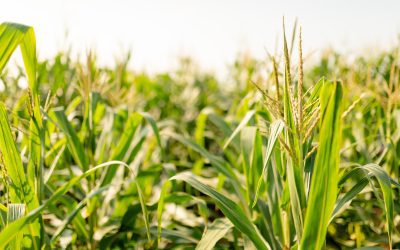By Brooke S. Appleton, Vice President of Public Policy with National Corn Growers Association

March is an important month in Washington. It’s the month that cherry blossoms bloom to the delight of city residents and tourists alike, and many outdoor activities, such as marathons, take off, shutting down city streets on the weekends.
This month is also a time when congressional and administration officials begin to unveil their plans for the year ahead. We saw the beginnings of this on March 7, when President Biden gave his State of the Union speech. The president released his proposed federal budget for FY 2025 several days later, even as Congress and the administration are at an impasse on parts of this fiscal year’s budget.
If the tone and tenor of the president’s address and the Republican response to that address are any indication of what we should expect in the year ahead, we should all fasten our seatbelts because it is going to be a bumpy ride.
The president, who has trailed in polls against his opponent, former President Donald J. Trump, gave nothing short of a campaign-style speech designed to rally his base and win over independents. Conspicuously absent were the usual olive branches or allusions to working together.
The speech was a reminder that we’re not just in an ordinary election year; we’re in an election year that will be unusually divisive. I have written at length in previous columns about how the divisions in this city are presenting all kinds of impediments to advancing legislation.
We can expect those challenges to grow exponentially in 2024.

This is a concern for farmers, who have numerous priorities before Congress, including farm bill reauthorization, passage of legislation ensuring year-round access to higher blends of ethanol during the summer months and advancement of the Next Generation Fuels Act.
To penetrate all the noise in the air in Washington, corn advocates are using ingenuity. Just as the president and members of Congress are setting their agenda for the year ahead, we’re reminding these policymakers of our objectives for 2024. Here is a sampling of our activities:
- Meeting with Key Leaders. Numerous corn growers from states in the heartland have visited Washington to meet with their state’s delegations to emphasize our priorities. NCGA board members, who will soon be in town for a scheduled meeting, also plan to meet with leaders in the administration and on Capitol Hill to drive home the importance of corn grower priorities.
- Launching Media Campaigns. To keep our messages front-and-center when we’re not meeting with key decision-makers, NCGA and state partners are running targeted ads in the D.C. metro area on important corn-centric issues. This includes the environmental and economic benefits of ethanol, our farm bill priorities and the innovative spirit of farmers and the role they play in environmental sustainability and the economy of rural America. Media campaigns like these round out a broader strategy to keep decision-makers engaged with corn grower priorities.
- Interacting with Congressional Candidates. Hopeful congress-bound candidates flock to D.C. to meet with stakeholders and interest groups to garner support ahead of their intended placement in an office on Capitol Hill. Because of our robust political action committee — Corn PAC — we have the resources to meet with potential partners and champions for our top priorities right here in the town they are striving to work in or stay in. This allows us to prime the pipes of policymaking to help ensure our members’ voices are heard and policy needs are met.
Government funding bills
The intense disagreements between Democrats and Republicans have helped fuel delays in the government funding bills. Ideally, these would have been signed into law before the Oct. 1, 2023, fiscal year began. Instead, a stopgap was approved that punted funding for four government agencies – including the USDA.
Congress must clear the deck on government funding before they will be able to move onto the farm bill and other corn grower priorities.
Leaders in the Senate and House have agreed to a $1.66 trillion government funding framework, but the details of how the money will be allocated will continue to be a challenge.
Supplemental funding legislation for Ukraine, Israel and Taiwan has further exposed intra-party disagreements within the Republican Party. Republicans in the Senate joined their Democratic counterparts to pass $95 billion in supplemental foreign funding. But House Speaker Mike Johnson (R-La.) has said the legislation will go nowhere unless funding for border security is included in the bill.
To put an exclamation point on all of this, the House voted to impeach Homeland Security Secretary Alejandro Mayorkas. The last time a cabinet member was impeached was 1876.
These are certainly not ordinary times.
While there is a lot at stake in Congress, we are also focused on the Administration where we’re watching rulemakings important to the future of the ethanol industry and seeking science-based standards with our trading partners.
For example, we recently organized an effort to send a letter to President Biden cautioning him against prioritizing electric vehicles over biofuels, such as corn ethanol. The letter comes on the heels of a similar effort by auto dealers and as the administration has advanced rulemakings in multiple agencies which favor zero emission vehicles. The effort resulted in major media coverage.
We also continue to fight to eliminate trade barriers, such as the Mexican ban on biotech corn, and efforts to place and maintain tariffs on products, like fertilizers, that are widely used by farmers.
So, when people ask me how corn growers deal with the challenges that we are hit with on what has become a regular basis, my response is always the same: We shake it off.
While the next several months will be full of challenges, thanks to the fact that it is a particularly divisive election year, corn grower leaders continue to work hard to advance legislation that is important to rural economies.
We will keep you posted on developments in these efforts. So, stay tuned.
Here’s to March, spring and an election year full of twists and turns.





